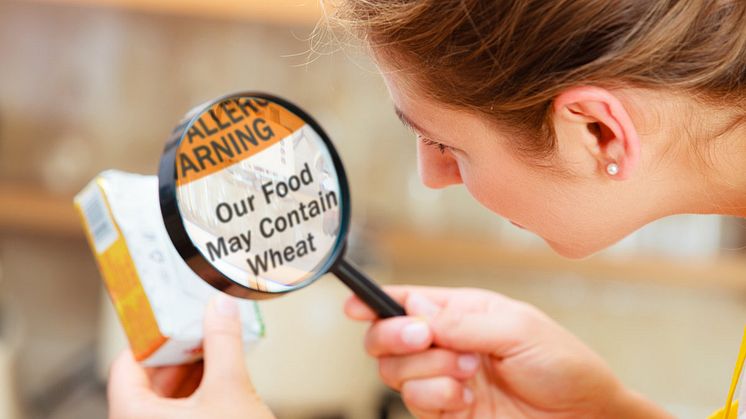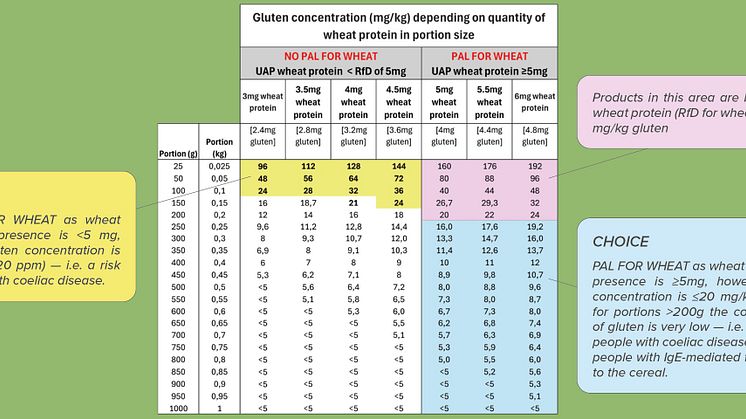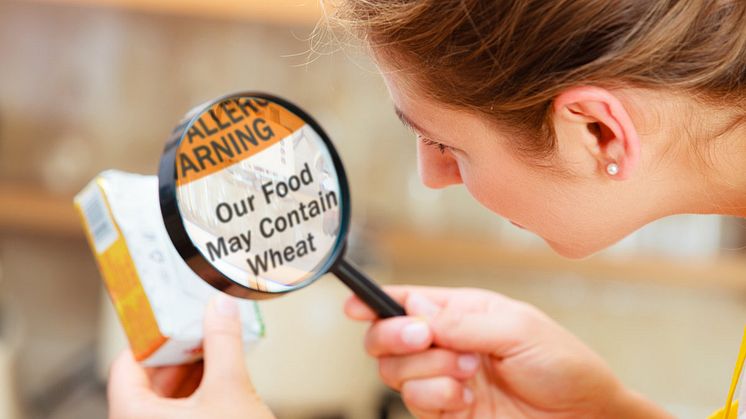
Press release -
AOECS Urges Codex to Consider Gluten in Allergen Labelling
The Association of European Coeliac Societies (AOECS) is currently working hard to convince the Codex Committee on Food Labelling (CCFL) to fully consider gluten and all cereals containing gluten in its latest proposals for Precautionary Allergen Labelling (PAL).
This urgency is heightened by the upcoming CCFL meeting at the 48th Session of the Committee on Food Labelling, to be held in Québec City, Canada, starting on 27 October 2024. AOECS is pressing for the needs of the coeliac community to be fully addressed during this session.
A Call for Codex to Protect Consumers
Even though AOECS welcomes the arrival of international regulations for Precautionary Allergen Labeling, which to date is entirely voluntary and not regulated, we are very much concerned that coeliac disease and cereals containing gluten were ignored in the initial proposals. The absence of an established reference dose for gluten and its omission from the proposed PAL guidelines risks undermining the safety of millions of consumers.
AOECS is positive about the acknowledgement of coeliac disease in the latest revisions to the Codex draft guidelines, but there is a need for further action.
AOECS urges CCFL to include all cereals containing gluten, such as wheat, barley, rye, and spelt, and to consider the established 20 mg/kg gluten threshold in the final version of the guidelines.
“For people with coeliac disease, gluten exposure, even at low levels, can cause serious health issues,” says Floris van Overveld, Vice President of AOECS. “Consumers need clear, consistent labelling that reflects the risks posed by gluten, so people with coeliac disease can make safe food choices. Failing to include gluten in these guidelines could have a detrimental impact on millions of lives.”
The Safety and Choice Issues
The current Codex proposals use a reference dose (RfD) based on serving size, which differs from the established concentration-based standard for gluten. This discrepancy presents risks at both ends for people with coeliac disease:
- For smaller portions (< 200 g), PAL may not be triggered by the presence of wheat protein under 5 mg, even when the concentration of gluten exceeds the safe threshold of 20 mg/kg. This poses a significant safety risk, as potentially harmful gluten concentrations may go unlabelled.
- For larger portions (> 200 g), PAL could be triggered by the presence of wheat protein above 5 mg, even when the concentration of gluten is low and unlikely to harm people with coeliac disease. This could unnecessarily restrict food options for coeliac consumers, reducing their choice of safe foods.
The inconsistency between the proposed PAL regulations and the Codex Standard CXS 118-1979 for foods for special dietary use for persons intolerant to gluten present challenges for both Food Business Operators (FBOs) and national authorities. It becomes increasingly difficult to simultaneously verify compliance with both standards and the relevant legislation.
What is Coeliac Disease
Coeliac disease (or celiac disease) is an autoimmune condition in which gluten-containing cereals trigger an inflammatory response in the small intestine. It is estimated that around 100 million people globally suffer from coeliac disease. However, only about 25% have been diagnosed, while the rest remain undiagnosed or experience related health issues. If left untreated, the disease can severely reduce quality of life and increase the risk of premature death.
Related links
Topics
Categories
The Association of European Coeliac Societies (AOECS) is an independent, non-profit umbrella organisation of over 40 member and affiliated National Coeliac Societies. Together with our members, we represent people affected by coeliac disease or dermatitis herpetiformis across Europe and beyond.
We are involved in several international initiatives to raise awareness of coeliac disease, gluten free diets, and encourage research into coeliac disease early diagnosis, patient’s quality of life and cure.





